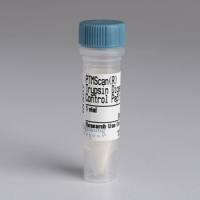Candida albicans is a commensal inhabitant of the normal human microflora that can become pathogenic and invade almost all body sites and organs in response to both host-mediated and fungus-mediated mechanisms. Serologic responses to C. albicans that underlie its dichotomist relationship with the host (host-commensal and host-pathogen interactions) display a high degree of heterogeneity, resulting in distinct serum anti-Candida antibody signatures (molecular fingerprints of anti-Candida antibodies in serum) that can be used to discriminate commensal colonization from invasive disease. We describe the typical proteomic strategy to globally and integratively profile these host antibody responses and determine serum antibody signatures. This approach is based on the combination of classic immunoproteomics or serologic proteome analysis (two-dimensional electrophoresis followed by quantitative Western blotting and mass spectrometry) with data mining procedures. This global proteomic stratagem is a useful tool not only for obtaining an overview of different anti-Candida antibodies that are being elicited during the host-fungus interaction and, consequently, of the complex C. albicans immunome (the subset of the C. albicans proteome targeted by the immune system), but also for evaluating how this pathogen organism interacts with its host to trigger infection. In contrast with genomics and transcriptomics, this proteomic technology has the potential to detect antigenicity associated with posttranslational modification, subcellular localization, and other functional aspects that can be relevant in the host immune response. Furthermore, this strategy to define molecular fingerprints of serum anti-Candida antibodies may hopefully bring to light potential candidates for diagnosis, prognosis, risk stratification, clinical follow-up, therapeutic monitoring, and/or immunotherapy of candidiasis, especially of its life-threatening systemic forms.






